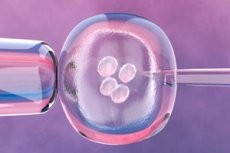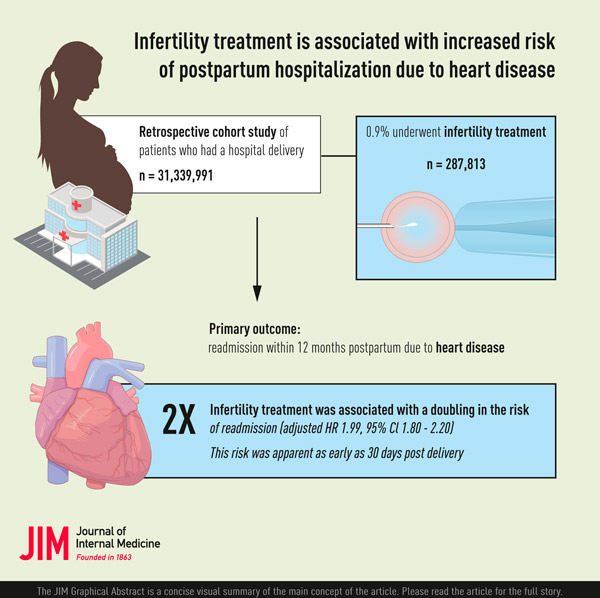New publications
Infertility treatment doubles risk of heart disease in the postpartum period
Last reviewed: 02.07.2025

All iLive content is medically reviewed or fact checked to ensure as much factual accuracy as possible.
We have strict sourcing guidelines and only link to reputable media sites, academic research institutions and, whenever possible, medically peer reviewed studies. Note that the numbers in parentheses ([1], [2], etc.) are clickable links to these studies.
If you feel that any of our content is inaccurate, out-of-date, or otherwise questionable, please select it and press Ctrl + Enter.

A study conducted by Rutgers Health researchers found that patients who underwent fertility treatment were twice as likely to be hospitalized for heart disease within a year of giving birth than those who conceived naturally.
Patients who had undergone fertility treatment were particularly likely—2.16 times more likely than those who conceived naturally—to be hospitalized with dangerously high blood pressure, or hypertension.
"Postpartum checkups are necessary for all patients, but this study suggests they are especially important for patients who have undergone fertility treatments to achieve conception," said Ray Yamada, a resident in obstetrics and gynecology at Rutgers University Robert Wood Johnson Medical School and lead author of the study.
The study authors say their findings support standards of care that now require an initial postpartum checkup three weeks after delivery, standards that some health systems have not yet adopted. Most of the increased risk occurred in the first month after delivery, especially in patients who developed dangerously high blood pressure.
“And these findings aren’t the only ones that point to the need for early follow-up care,” said Kande Anant, chief of epidemiology and biostatistics in the department of obstetrics, gynecology, and reproductive sciences at Rutgers University Robert Wood Johnson Medical School and senior author of the study. “Over the past few years, we’ve been involved in a series of studies that have found significant risks of heart disease and stroke in a variety of high-risk groups of patients during the first 30 days after delivery — risks that might be mitigated with early follow-up care.”

Graphical summary. Source: Journal of Internal Medicine (2024). DOI: 10.1111/joim.13773
The study analyzed the Nationwide Readmissions Database, which contains nationally representative data on approximately 31 million hospital discharges and readmissions per year. The database contains diagnosis codes that allow researchers to target specific populations and identify reasons for readmissions.
The researchers used data from more than 31 million patients who were discharged after giving birth from 2010 to 2018, including 287,813 patients who underwent infertility treatment.
Although fertility treatment predicted a sharp increase in heart disease risk, the study authors noted that the relatively young age of the fertility treatment patients kept their overall risk fairly low. Just 550 out of every 100,000 women who received fertility treatment and 355 out of every 100,000 women who conceived naturally were hospitalized for cardiovascular disease in the year after giving birth.
The reason for the increased risk of heart disease associated with infertility treatments remains unclear. The increased risk of heart disease may be related to the infertility treatments themselves, to the underlying medical problems that made patients infertile, or to some other cause.
"In the future, I would like to see whether different types of fertility treatments and, importantly, medications are associated with different levels of risk," Yamada said. "Our data did not provide information about which patients received which treatments. More detailed information may also provide insight into how fertility treatments affect cardiovascular outcomes."
The work was published in the Journal of Internal Medicine.
